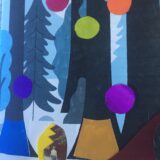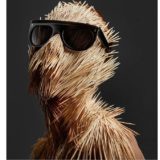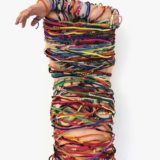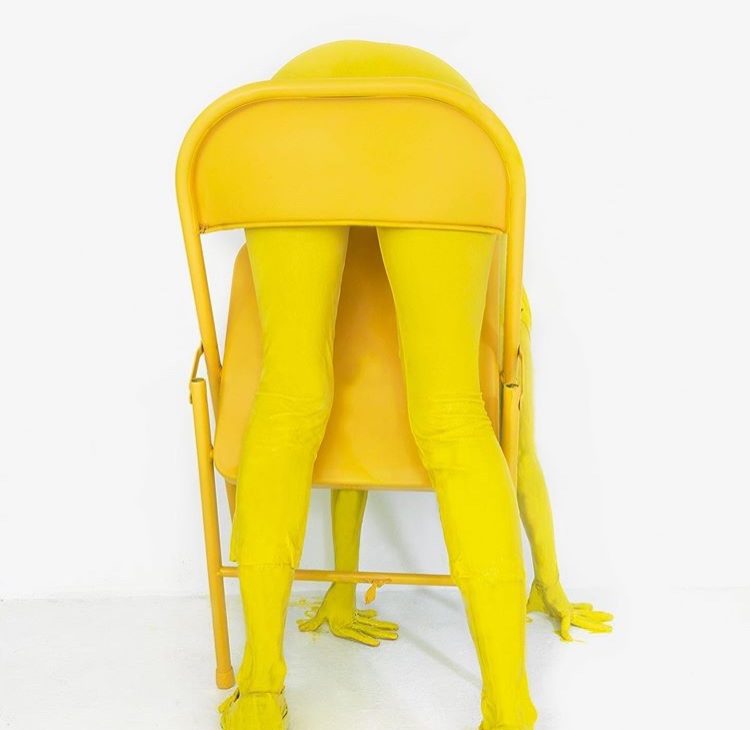In the show Fleabag, written by Phoebe Waller-Bridge, Fleabag and the priest have been falling for each other, but she has been quite closed off about herself. He finally asks her to do an experiment: He will put on his Vestments, those gorgeous robes! She can then step into the confessional and tell him more about herself.
Although reluctant at first, she starts with the ordinary: lies, violence, blasphemy, a lot of sex outside and inside other people’s marriages. Then comes the worst of it……she is so sure of it, completely unambiguous, that it rolls out of her like a waterfall.
It’s Bad!
I want someone to tell me what to wear in the morning; Tell me what to wear every morning. Tell me what to eat, what to like, what to hate, what to rage about. I want someone to tell me what to listen to, what band to like, what to buy tickets for, what to joke about and what not to joke about. I want someone to tell me what to believe in, who to vote for, who to love, and how to tell them. I want someone to tell me how to live my life.
I think Waller-Bridge has captured something about this cultural time. At this point she is not confessing this wish we all can have at times, to another equal. Throughout the show, she has never given him a name, other than calling him Father. She has, for the moment put herself in the hands of the authority, and the seductiveness is palpable, especially with those magnificent robes. And perhaps it could work after all……..maybe she could relinquish responsibility for her choices to this authoritarian other, because as she admits, she has been making a mess of things anyway.
In 1932, in the shadow of the rise of fascism, Aldous Huxley wrote Brave New World. It was his vision of a technologically advanced future, where humans are socially indoctrinated and passively allow an authoritarian ruling political order.
Social critic Neil Postman, contrasted the worlds of Nineteen Eighty-Four and Brave New World in the foreword of his 1985 book, Amusing Ourselves to Death. He writes:
“What Orwell feared were those who would ban books. What Huxley feared was that there would be no reason to ban a book, for there would be no one who wanted to read one. Orwell feared those who would deprive us of information. Huxley feared those who would give us so much that we would be reduced to passivity and egotism. Orwell feared that the truth would be concealed from us. Huxley feared the truth would be drowned in a sea of irrelevance. Orwell feared we would become a captive culture. Huxley feared we would become a trivial culture, preoccupied with some equivalent of the feelies, the orgy porgy, and the centrifugal bumblepuppy. As Huxley remarked in Brave New World Revisited, the civil libertarians and rationalists who are ever on the alert to oppose tyranny “failed to take into account man’s almost infinite appetite for distractions.” In 1984, Orwell added, people are controlled by inflicting pain. In Brave New World, they are controlled by inflicting pleasure. In short, Orwell feared that our fear will ruin us. Huxley feared that our desire will ruin us”.
In Fleabag, she is expressing a wish, amidst her own failings and the tremendous complications of the world in which she lives. She knows surrender inevitably won’t work. One of the things that attracts her to the priest is the humanity of his openness in his fallibility. He is terrified of foxes, fears they chase him at night, drinks too much, and fears he might love those gorgeous robes more than being a priest. But, he attempts to begin again and again, all the while believing in responsibility, laughter, love, and doing the hard things. That’s where the magic happens, between the two humans. In the end, they both do the hard things, and we have seen the gain.
Deborah Eisenberg writes, “This election is undeniably nerve-racking, dreary, humiliating, and terrifying, but insofar as we strenuously exercise our rights—now, specifically, in other words, by voting, and helping to make it possible for other people to vote—it’s not one hundred percent a charade: Mediocrity, in its amorphousness, is malleable, whereas the Worst is rock hard. The days are streaming out behind us as we tremble. We can’t retrace them, and even if we could they wouldn’t lead anywhere very desirable. This election isn’t an end—it’s just a hurdle; what will happen in its wake is anybody’s guess—but that’s what makes it critical: Which avenues of justice will we be able to pry open or widen, and which will be shut down irremediably in our paths?”
What you reading? he’d say.
Elizabeth would hold it up.
BRAVE NEW WORLD, she’d say,
Be well,
Marlene
*Artwork by Lee Materazzi; Quint Gallery, quintgallery.com
Please support Independent Bookstores



